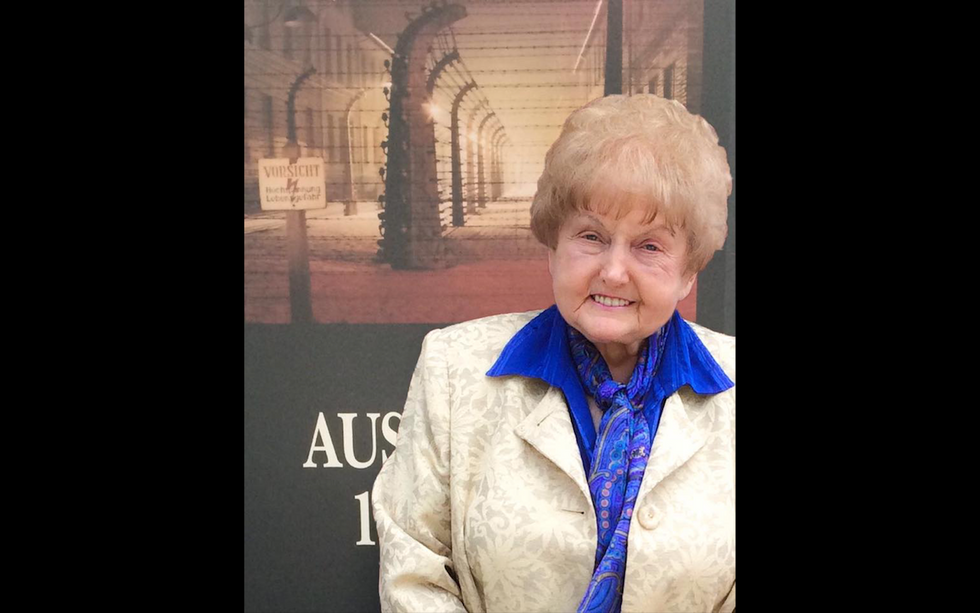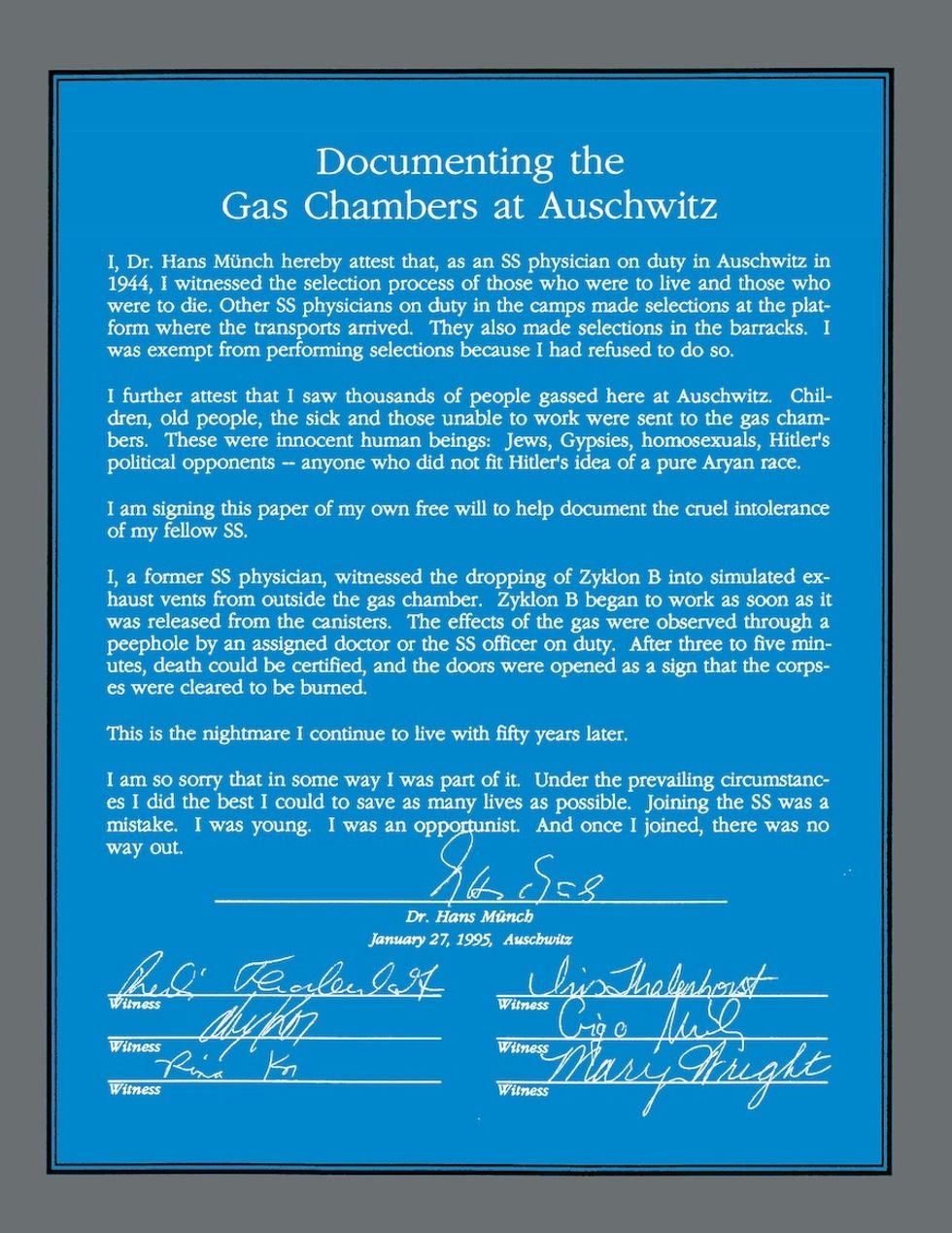Just last Thursday, February 15, Rhode Island College invited Holocaust survivor Eva Mozes Kor to speak about her experiences in Auschwitz as a Mengele Twin. Back in 2017, Kor had even done a video with BuzzFeed detailing the events of her life while in the concentration camp: the same video ended up going viral and has over 5 million views.
It was so incredible to hear from Kor herself about her survival of Auschwitz and how she dealt with everything that happened after the camp was liberated. She even added a touch of humor to her dark story, proving just how much she has grown from the very hateful person she used to be after having survived being a subject in Dr. Mengele’s sick experiments.
Eva Mozes was born on January 31, 1934, in a tiny village in Transylvania, Romania to Alexander and Jaffa. In 1940, Romania was invaded by the Nazis including Eva’s small village. While at the lecture, she described the dictatorship of the Nazis while they occupied Romania.
In school, she only learned reading, writing, and arithmetic: one of her arithmetic questions was, “if you have 5 Jews and you shoot 3, how many Jews are left?” Hitler’s anti-Semitism was spread like wildfire through his country and in the countries he conquered.
By May of 1944, the Nazis came to Eva’s village and rounded all the Jews up into a cattle car. After a long travel, Eva and her family ended up in Auschwitz on a silver platform along with the rest of the people who had arrived there. As Eva looked around to figure out where she was, she realized her father and her two older sisters had disappeared.
Gripping to her mother and twin sister, they heard a Nazi shouting in German asking for twins. In order to save her children’s lives, Eva’s mother asked the Nazi if her daughter’s being twins was a good thing.
When the Nazi replied, “yes,” Eva and Miriam were taken away from their mother. Thirty minutes was all it took for Eva and her sister to be separated from their family forever.
Eva and Miriam then became part of Dr. Josef Mengele’s—“The Angel of Death”—experiments on twins. He was instructed to discover ways “to increase the birthrate of an Aryan master race.”
Eva was a subject in two experiments: on Mondays, Wednesdays, and Fridays, Eva and Miriam were put in a room, naked, along with other twins and was measured for eight hours a day. Every. Single. Inch. Of their bodies was measured three days out of the week, standing for eight hours a day. The Nazi doctors would then compare Eva’s measurements to her twin and then to other charts.
On Tuesdays, Thursdays, and Saturdays, Eva and others would be taken to a blood lab to take blood as well as to give her at least five injections, each filled with different, mysterious contents: “The contents of those injections, we didn’t know then, nor do we know today.” Following those injections, Eva became deathly ill and was sent to the hospital to die.
The day after Eva arrived in the hospital, Dr. Mengele visited her with four more doctors, looked at her charts and said, “Too bad. She’s so young. She has only two weeks to live.” Eva was never examined. She was only left to die in that hospital.
During her time there, Eva says she only remembers one clear thing. Having to crawl across the floor to get to a faucet for water and repeating to herself over and over again, “I must survive” while struggling to remain conscious.
Two weeks later, Eva’s fever broke and she slowly recovered from her illness. After another three weeks, her fever finally returned to normal and she was able to go back to her sister.
Once she got back, Eva asked Miriam what happened to her during the two weeks she was gone. Her sister replied, “I cannot talk about it. I will not talk about it." Eva and Miriam never mentioned Auschwitz again until 1985, almost forty years after the concentration camp was liberated.
In 1985, Eva asked her sister about what happened to her after Eva was taken to the hospital: “I was under Nazi doctor supervision twenty-four hours a day. […] [I] was taken back to the labs, injected with many injections that made [me] feel very sick.”
It wasn’t until another couple of years later after Miriam had gotten married and was about to have her first child, that the doctors in her hometown of Israel found out what happened to Miriam from those injections.
Her first pregnancy brought with it terrible kidney infections that couldn’t be treated with any medication. Her second pregnancy revealed that her kidneys never grew any larger than the size of a ten-year-old child’s.
Despite Eva’s pleas for Miriam to stop having children, by her third child, Miriam’s kidneys began to deteriorate. In 1987, Miriam’s kidneys began to fail and Eva made the decision to give her sister her left kidney.
Only a year afterward, Miriam’s bladder became filled with cancerous polyps. Miriam’s doctors kept asking for Eva to get their files from Auschwitz. After hunting nonstop for their files, but to no avail, Miriam ended up dying on June 6, 1993.
A little while following Miriam’s death, Eva was asked to go to Boston to give a lecture. The professor who had contacted Eva asked her to bring a Nazi doctor with her: “I was stunned at such a question.” She then decided to ask a Nazi doctor who worked with her and Miriam back in 1992 on a German documentary about the Mengele Twins experiments.
The doctor’s name was Dr. Munch who was very close to Mengele. Dr. Munch didn’t want to go to Boston with Eva, so instead invited her to visit him in Germany in his house. Although she was nervous, Eva agreed and in August of 1993, she went to Dr. Munch’s house.
During her visit to Dr. Munch’s home, Eva asked him to attend the 50th anniversary of the liberation of Auschwitz. She planned for Dr. Munch to sign a documentation she created about the details of Auschwitz he had revealed to her. She wanted him to sign it by the gas chamber ruins.
Dr. Munch said yes with zero hesitation: “I will have an original document signed by a Nazi. And if I ever met a revisionist who said the Holocaust didn’t happen, I could take that document and shove it in their face.”
When thinking of ways to thank Dr. Munch, Eva decided to write him a letter of forgiveness. It was at that moment, she realized she had an incredible ability: “[…] I had the power to forgive. No one could give me that power, no one could take it away. It was all mine to use in any way I wished.”
After four months, Eva finished her letter and asked an old English professor of her’s to help her fix it up. Once the letter was edited, Eva’s professor explained to her that her issues didn’t reside with Dr. Munch. In order to move on, Eva would need to forgive Dr. Josef Mengele.
Eva’s professor told her to write Dr. Mengele a letter of forgiveness. Instead of writing a letter, though, she did something different when she got home: “I picked up a dictionary and wrote down twenty nasty words, which I read clear and loud to that make-believe Mengele in the room. And at the end, I said, ‘In spite of all that, I forgive you.’”
Despite everything that Dr. Josef Mengele did to Eva and her sister, through all the pain he had caused her, Eva Mozes Kor was able to free herself from victimhood by choosing to no longer view herself as a victim.
Instead, she used her incredible, strong power of forgiveness to heal herself: “If a doctor has discovered the cure for cancer or Alzheimer’s, should they keep it to themselves? Well, I’ve discovered the cure to victimhood.”
And that is the message she brings to each of her lectures. That in spite of whatever someone has done to you, no matter how much pain and misery they’ve put you through, you will never be truly free until you are able to use your own power to forgive them. It is only then that you will ever feel healed and whole again.

















